History of Migaloo across Australia over the years
Migaloo has amazed and astounded us since the albino humpback was first spotted in 1991.
QLD News
Don't miss out on the headlines from QLD News. Followed categories will be added to My News.
He’s our beloved white whale with the most colourful of pasts.
Migaloo has amazed and astounded us since the albino humpback was first spotted off the east coast near Byron Bay in 1991.
This is the tale of a unique whale and our love affair with him >>>
July 2000: Keeping a close eye
Researchers were closely following the progress of the rare white whale as it migrated to warm-water breeding grounds off Queensland.
Nicknamed Migaloo – Aboriginal for “white one’’ – the rare humpback whale was believed to be a male albino aged about 10, with pure white skin and a distinctive hook on his dorsal fin.
“This whale is completely white,’’ said New South Wales National Parks and Wildlife ranger Simon Walsh.
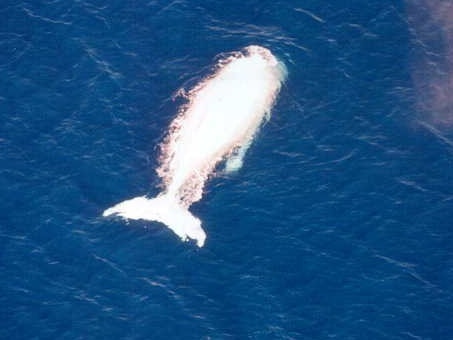
“There are some whales that have large amounts of white on their body. But if you see a tiny section of black on there, it is not the white whale we are thinking of.’’
August 2003: Injured, heading home
Wounded white whale Migaloo gave up his annual breeding migration and headed back to the safety of southern waters after colliding with a yacht off Magnetic Island.
The collision nearly sank the trimaran, and one of its rudder boards broke off and lodged in the whale’s back.
Queensland Parks and Wildlife Service officers, fearing for the health of what is believed to be world’s only albino humpback whale, mounted aerial searches, and Migaloo was discovered swimming north-west between Magnetic Island and Palm Island.
Scientists in a boat sailed close to the whale and reported him to be swimming normally.
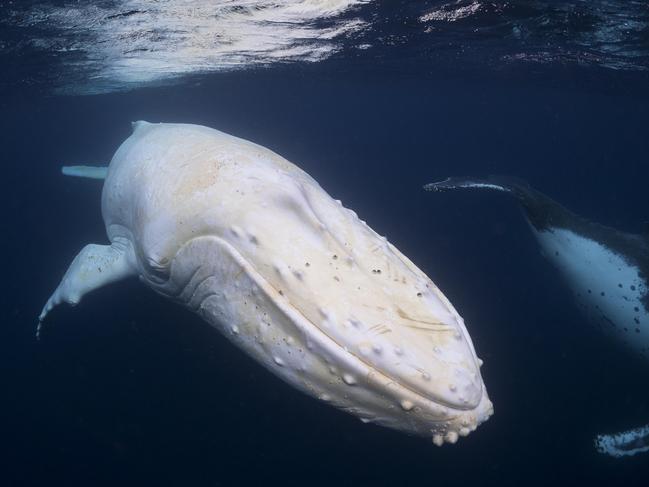
June 2004: New love interest
A new girlfriend for famed albino humpback Migaloo showed off for her boyfriend in spectacular style.
The cetacean sweethearts were snapped swimming near the Queensland-NSW border on their journey north.
Queensland Environment Minister John Mickel declared Migaloo to be of special interest to ensure his safe passage during the annual migration.
Boats or jet skis will have to stay at least 500m away and planes can fly no closer than 600m without written permission. Offenders will be liable for a maximum fine of $12,375.
June 2005: International celebrity
Migaloo, the white humpback whale who has become an international celebrity in his past few northern migrations, was sighted off Sydney and was heading back to Gold Coast waters – and it looked like he had company.
Television footage showed Migaloo cruising past Sydney’s northern beaches, possibly with a female in tow.
There was speculation another humpback sighted recently could even be one of Migaloo’s offspring.
His impending arrival was good news for the Gold Coast’s whale tour operators, who were rejoicing after a spectacular weekend of whale watching.
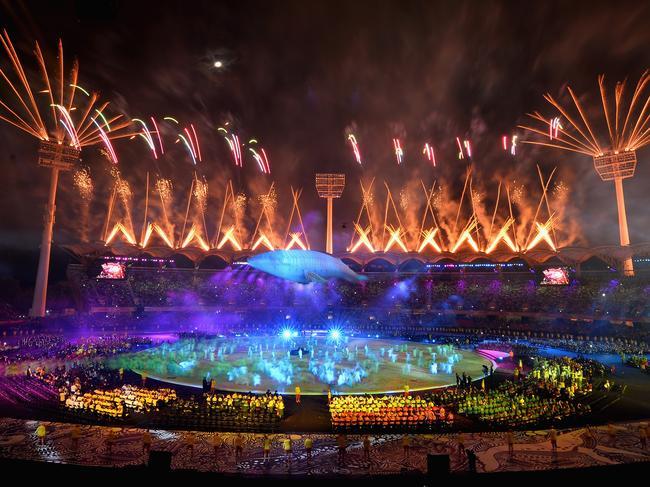
May 2007: Search for family
Who’s your daddy?
That was the question Australia’s top whale researchers planned to solve as a record 10,000 humpback whales cruised along the east coast.
Southern Cross University Whale Research Centre director Associate Professor Peter Harrison confirmed the existence of a young white whale, spotted by an Italian tourist off Byron Bay in 2005.
Researchers were rushing to determine whether the young whale is the offspring of Migaloo.
“I have studied some video footage and this whale is definitely a white whale. It is quite exciting. Of course we cannot say that the whale is related to Migaloo but that is our goal,’’ he said.
July 2009: ‘Don’t get too close’
Migaloo was in danger of being loved too much.
Crowds were drawn to the eastern coast of Australia in the hope of catching a glimpse of the unique 40-tonne white humpback.
Environmental authorities declared the sea around him an exclusion zone, with boats and jetskis not allowed within 500 metres (1,640ft) and aircraft banned from flying less than 600 metres above him.
Anyone who gets too close, as the whale swims from Antarctica to the Great Barrier Reef in northern Australia for the mating season, would be fined $16,500.
August 2011: Fears for Migaloo
The dead whale off Queensland’s Palm Island was not the albino humpback Migaloo, Queensland Parks and Wildlife Service confirmed.
The discovery of a white whale off Palm Island, near Townsville, sparked fears that Migaloo had met his end.
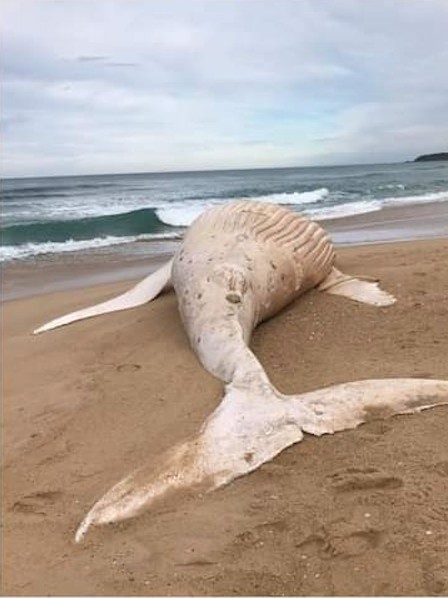
Environment Minister Vicky Darling said rangers headed to the scene after the tide prevented an inspection the previous day.
“They’re 100 per cent certain that the dead whale is not Migaloo,’’ Ms Darling said.
September 2012: Found at long last
It had been three long years between appearances but Migaloo the white whale made a spectacular return to Gold Coast waters.
Australia’s best-known humpback usually sneaks past the Gold Coast under the cover of darkness.
But Migaloo frolicked about five nautical miles off Broadbeach, swimming within metres of a fleet of whale-watching boats and dazzling passengers before linking with another two humpbacks making their southern migration back to Antarctica.
The whale had not been spotted off the Gold Coast since 2009 but had teased and tantalised fans with appearances off Byron Bay and the Sunshine Coast.
Sea World marine sciences director Trevor Long could not contain his excitement.
“How awesome was that?’’ said Mr Long after watching Migaloo for two hours.
June 2013: Migaloo’s health fears
There were fears Migaloo may have a tumour on his head, courtesy of his albinism.
US whale researcher Greg Kaufmann, doing research off Port Douglas in far north Queensland, reportedly saw a lump on Migaloo’s head which he fears could be cancer.
Mr Kaufman said Migaloo was otherwise doing well and acting just as he should with other humpbacks who have migrated to Queensland’s warm waters for winter.
Skin cancers are regularly found on sheep and animals that are white-haired or have pink or white blazes on their noses such as dogs and horses.
Southern Cross University Whale Research Centre co-director Wally Franklin said it was difficult to determine whether a lump on Migaloo’s head was a tumour or simply one of the many growths that humpbacks sported.
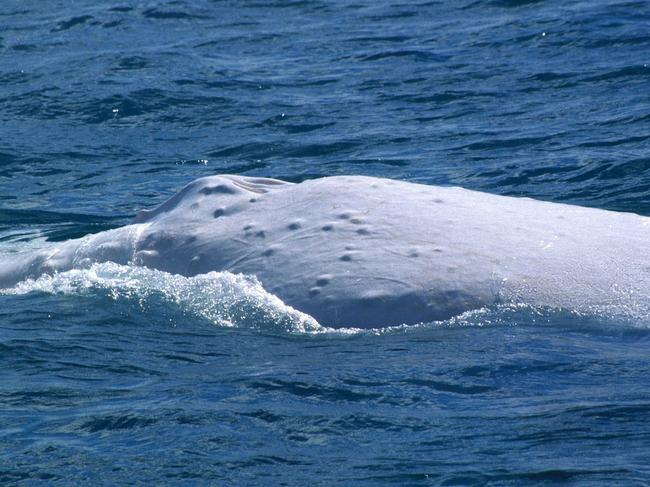
July 2016: ‘Don’t get too close'
Celebrity whale Migaloo was given a government bodyguard after up to 10 boats harassed the rare mammal as he passed the Gold Coast.
As the 25-year-old white whale cruised north past Moreton Island he was escorted by rangers after being stalked by commercial and private whalewatching boats off the Glitter Strip.
Skippers who breached the 500m exclusion zone around the distinctive animal faced fines of up to $20,000.
Environment Minister Steven Miles slammed the reckless boaties, saying anyone who risked the rare whale’s safety should be ashamed of themselves.
Photographs showing the boats crowding around the whale angered the minister, who ordered the escort to keep stalkers at bay.
July 2018: Migaloo makes a move
Migaloo was making his way along the Queensland coast for the first time in the season.
Keen whale watchers sighted Migaloo off Moreton Island, just days after photographer Sean O’Shea captured a spectacular tail splash near Byron Bay.
Southern Cross University whale researcher Dr Wally Franklin and his wife Dr Trish Franklin had been studying humpbacks since 1989 and first saw Migaloo 26 years ago.
July 2019: An early arrival
The world-famous white humpback whale was back with a splash on the Great Barrier Reef – but just why was a “million dollar question”.
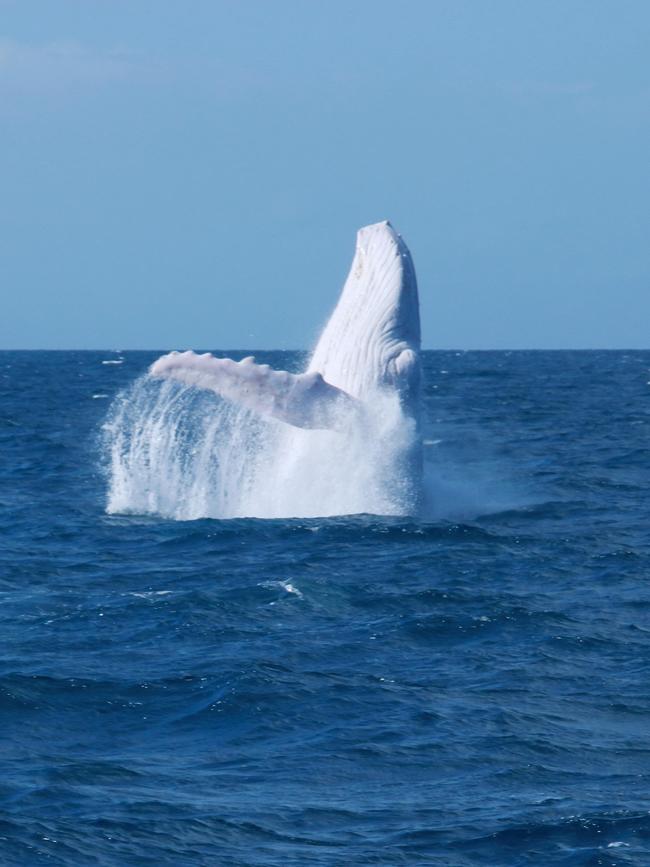
“We’re all baffled,’’ Oskar Peterson, founder of the White Whale Research Centre, said.
“It is amazing, but strange and unusual to have Migaloo so far north this early in the whale season.”
Whale boffins believe the mystical 40-tonne, 15m tourist drawcard, who has been previously spotted off New Zealand or south of Byron Bay at this time of the year, may be on a mission to get his glow on for the annual mating season.
April 2022: Migaloo's offspring?
A Queensland teenager captured incredible footage of a rare white humpback whale swimming off the New South Wales coast with its young.
Brayden Blake, 16, was holidaying at Fingal Head when he spotted the white whale about 500 metres off the shoreline.
Up to six calves could be seen swimming alongside the mother, which has raised the question of whether Migaloo has given birth recently.
July 2022: Dead whale not Migaloo
A dead humpback whale found washed up on an Australian beach was confirmed as a young female that may have lost her colour after death – not famous white whale Migaloo.
Victorian wildlife officials announced the confirmation after the whale’s white colour sparked fears the famed Migaloo had gone to the ocean in the sky.
Officers from Victoria Government’s Environment, Land, Water and Planning said this morning that an analysis of the images show the carcass is a different whale.
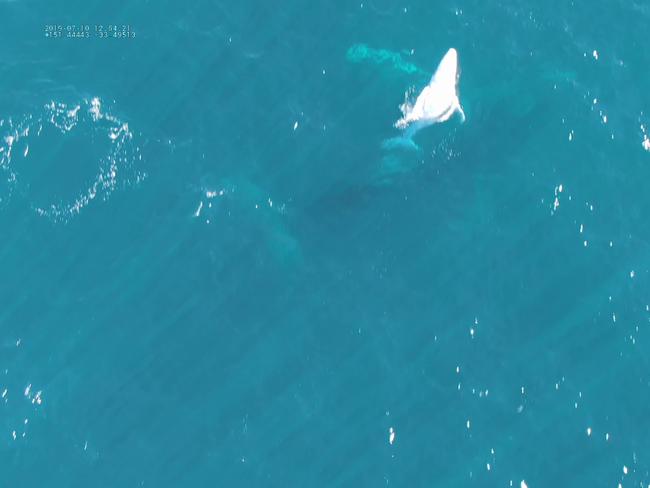
March 2024: Shark net fears
There were fears the iconic albino whale may have been killed by a Queensland shark net according to an environmental report.
Commissioned by environmental group The Envoy Foundation, the 2023 review into the Queensland Shark Control Program delivered a scathing assessment of the polarising policy which aims to protect the state’s beaches from ocean predators.
The report also suggests Migaloo’s mysterious absence from the Queensland coastline for the past few years could be due to an encounter with a Sunshine Coast shark net which disappeared in 2021.




